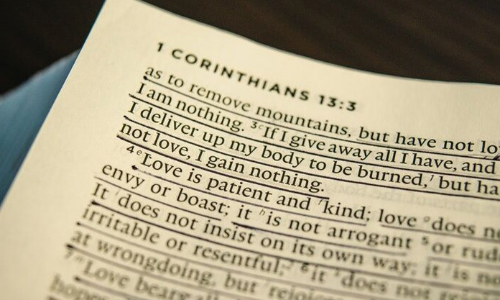The religion of love

Mevlana Jelaluddin Rumi has said, The religion of love is like no other He was not advocating a new religion, for he was content with Islam as his practice and frame of reference Perhaps he was pointing to an awakening of Divine Love that supersedes all outer forms of religion because it is the essence of religion itself But why is it like no other Are religions, as commonly practiced, mis
Mevlana Jelaluddin Rumi has said, “The religion of love is like no other.” He was not advocating a new religion, for he was content with Islam as his practice and frame of reference. Perhaps he was pointing to an awakening of Divine Love that supersedes all outer forms of religion because it is the essence of religion itself. But why is it “like no other?” Are religions, as commonly practiced, missing the mark?
He must have had something quite exceptional in mind to express this idea so radically. Perhaps he felt the need to remind us that religion and religious forms tend to default to something quite unlike their original impulse, that the seering insight of a prophet is quite different from the clerical establishments that claim ownership of the prophet’s message.
The religion of love could have no particular outer form, nor is it dependent on laws, and yet it can be recognised, no matter what its outer form, by those who have a “taste” for it.
It is not other than the “new covenant.” Of Jesus. The religion of love was also brought by Muhammad and passed on through his closest companions, Ali and Abu Bakr, to eventually emerge as Sufism. And in the fifteenth century in India Kabir expressed a religion of love quite independent of all orthodoxies.
A spirit of emancipation is fundamental to the religion of love, for spiritual love frees us from the coarseness and heedlessness of egoism. Those who learn to love in this way will not be subject to the excesses that the law is meant to protect us against. If we learn to be more in love, our behaviour will be guided by a sense of appropriateness, a compassionate sensitivity that derives from an awareness of unity.
Religion is meant to be the remedy, but sometimes it is the illness. When the religion of fear clouds the religion of love, the God of Mercy and Compassion is replaced by the idols of judgment and punishment. In truth, the only thing we should fear is the unrestrained ego, well aware of how it can enslave us. But this is different from believing we please God by obsessively performing outer rituals, living a life of rigid regulations, and following authority figures, as if the God of nature, creativity, and love had created life as a military training programme.
Stimulating fear in the name of religion is a form of mind control, not spirituality. Fear is a manifestation of the reptilian brain (terror, fight or flight), which evolved before the mammalian brain (warm and fuzzy feelings) and the frontal cortex (intention, conscious choice). God, the highest reality, is not approached by anything less than the higher faculties of the human being: the subtle perceptions of the intuitive heart.
At first the religion of love does not “kill the ego” but transforms it into a servant of the heart. We will not be “closer to God” after we have snuffed our every desire, including those that are part of a healthy human life. It does no good to torture the soul. Desire has its purpose, as long as it is in due proportion, as long as it does not enslave us, as long as it is does not lead us to exploit others. The desires of a pure heart may even be a manifestation of divine joy. To recognise and follow your master desire can lead to a life of deep purpose and integrity.
Sufi Shaikh Kabir Helminski

















